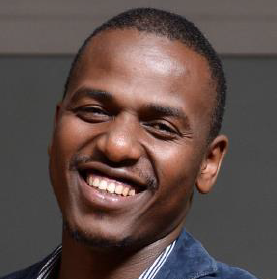CASA 4×4: Creating products, services and enterprises that meet the needs and aspirations of rural households, co-driven by Dan Haglund, Nidhi Pant and Thomas Njeru
CASA EVENT
CASA 4×4: Creating products, services and enterprises that meet the needs and aspirations of rural households, co-driven by Dan Haglund, Nidhi Pant and Thomas Njeru
This month the CASA 4×4 is a collaboration with the Shell Foundation. It shares findings and insights from the Understanding Rural Pathway Transitions report. The report advocates mapping rural households’ economic and social circumstances to align support to meet the needs and aspirations of rural households.
For a pdf summary of this webinar, click here.
The report was a collaboration between Shell Foundation and MasterCard Foundation’s Rural & Agricultural Finance Learning Lab, with support from Foreign, Commonwealth and Development Office (FCDO).
There are three 4×4 drivers this month. They share 4 insights on how a nuanced understanding of rural household needs can impact business performance.
Dan Haglund, senior private sector adviser in FCDO Agriculture Research, will share an overview of the report. He will explain why the Understanding Rural Pathway Transitions is important and what investors, and others can learn.
Nidhi Pant transitions from a chemical engineer to a farmer and entrepreneur. She is co-founder from Science for Society (S4S) Technologies. She will talk about how the rural pathways approach to segmentation helped define their business model. She will also advocate how other enterprises and funders may maximize the benefits of the rural pathways model.
Thomas Njeru is co-founder and co-CEO of Pula. As one of the youngest actuaries in Kenya, he is redefining the insurance offer for smallholder farmers in developing countries. He will talk about the importance of partnerships and the difference between clients, beneficiaries, and customers.
The CASA programme is proud to work in partnership with the Shell Foundation to share knowledge and insights with the agricultural investor community in Asia and Africa.
This is a summary of CASA 4×4 Boxset 3, which was delivered in collaboration with Shell Foundation and co-driven by Dan Haglund (FCDO), Nidhi Pant (S4S Technologies) and Thomas Njeru (Pula). This 4×4 explores the implications of the Rural Pathways model as a means of understanding the long-term trajectory of rural households.
The Rural Pathways framework offers common definitions of target clients and pathway transition. It also suggests how different actors fit into that journey and how stakeholders can collaborate, on the basis of aligned expectations. This allows more effective and transparent partnerships between providers working with rural customers.
Understanding the drivers and barriers can help service providers, funders, and policymakers to adopt a more sophisticated way of thinking about rural farming households to:
• Design better customer research that can provide tailored products and services that can help rural households become more resilient
• Develop stronger and more thorough impact and investment with long-term horizons,
helping funders make a more accurate assessment of the impact-return trade-off.
• Develop more effective partnerships with others working in the rural livelihoods sector.
Understanding Rural Pathway Transitions
Dan Haglund, senior private sector adviser, FCDO:
Agriculture activities are highly context specific, dependent on many local factors such as soil quality, local weather patterns and access to markets. This report provides empirical data from over 1,000 rural households in Kenya and suggests a different segmentation based the diverse needs and aspirations of the people working in this area. This leads to different pathways that rural households aim to progress through.
Businesses trying to serve farmers often make basic and simplistic approaches to segmenting these customers. The report offers business a more sophisticated framework to help them tailor products and services to meet different customer needs. The complexity of farmers’ needs requires stakeholder collaboration. There is a necessity for partnerships across funders and businesses that can share data to get a more granular understanding of farmers’ requirements.
Segmenting farmers to define the business model
Nidhi Pant, co-founder, Science for Society (S4S) Technologies:
The rural pathways approach helped S4S segment farmers and gain insight into their needs and expectations. Farmer segmentation is usually based on factors such as assets and income. The report suggests the importance of behavioural factors such as their work ethic and level of entrepreneurship.
The segmentation and research processes established that women were more diligent in the solar drying process. S4S identified a segment of landless small-scale women farmers that are dependent on rain-fed agriculture and want to earn an additional income, which have limited options outside of the home and are therefore loyal suppliers.
Partnering and segmenting relationships
Thomas Njeru, co-founder, Pula:
Pula links up programmes supporting farmers, and the insurance market, to guarantee farmers an income based on the expected yield For Pula, the beneficiary is not the same as the client and their business model requires partners to have an interest in building the resilience of the beneficiary farmers.
Pula highlights an extensive and untapped market in agricultural insurance, and work with insurance providers that can take a long-term perspective, as it takes time for the scheme to be profitable. They select insurance companies keen to work in partnership to develop their understanding of the market and impact on the yield level to build a sustainable business model.
By brokering supply and demand, and not being the insurance, Pula can exploit their knowledge and processes and develop a niche market. This allows Pula to concentrate on refining their data models and relationships.
Maximizing benefits of the rural pathways model
Nidhi Pant, co-founder, Science for Society (S4S) Technologies:
Funders and investors should note that the customer segment in rural communities is important. Funders can refer to this when they are designing challenges and funding enterprises. It can help decide the appropriate investment needed for funding, the stage of funding, and what type of funding is required (debt, equity, non-dilutive). It is important to have a holistic approach that integrate various components such as asset finance /financing and market linkages.
When working with the most vulnerable groups in the population higher levels of capacity building and training are required.
SPEAKERS

Dan Haglund
Dan Haglund is a senior private sector adviser in the Agriculture Research Team of FCDO’s Research and Evidence Division. His work focuses on scaling innovative private sector solutions for resilient food systems. This is achieved by strengthening evidence and mobilising additional investments to deliver productivity, climate and nature objectives for small-scale producers. Prior to joining the civil service in 2015 he worked for a leading development consultancy for five years, and before that spent four years in investment banking.

Nidhi Pant
Nidhi Pant is a chemical engineer turned farmer turned entrepreneur and co-founder & head of finance at S4S Technologies. Nidhi is a winner in the Women Transforming India Awards by NITI Aayog and United Nations (UN); she has been listed in Forbes 30 Under 30 Asia 2019; winner of Unilever Young Entrepreneur Award 2019 and was ‘Emerging Innovator of the Year’ at the inaugural edition of Economic Times Women Leadership Awards. S4S Technologies is a near-farm gate food processing platform, converting farm losses into value-added products utilising solar driers. S4S trains landless women farmers to become micro-entrepreneurs, by equipping them with the right combination of technology, finance, and market access. S4S is working with over 6500 farmers, and 505 Women Entrepreneurs.

Thomas Njeru
Thomas Njeru holds a BSc in Actuarial Science from the University of Nairobi, where he graduated with first class honors and was Kenya’s youngest ever actuary to qualify as a Fellow of the Institute of Actuaries. Thomas has in-depth experience as an actuary across the continent, covering actuarial valuations and product development, mergers and acquisitions, analytics, risk and capital management as well as operational and strategic reviews. He is a tireless entrepreneur and has been part of multiple start-ups, providing a profound and quantitative understanding of the risks and potential of new ventures. He provides strategic oversight to Pula.
Stream
CASA 4×4 boxset 3, with guests Dan Haglund, Nidhi Pant and Thomas Njeru, who give their insights on the Rural Pathways model.
LEAVE A COMMENT
We welcome your feedback on all CASA events and activities. Please leave any questions or comments below.